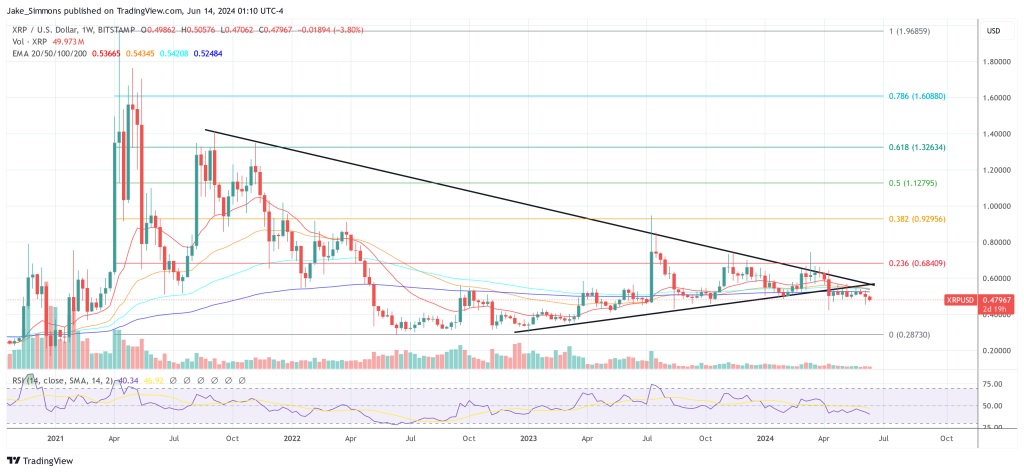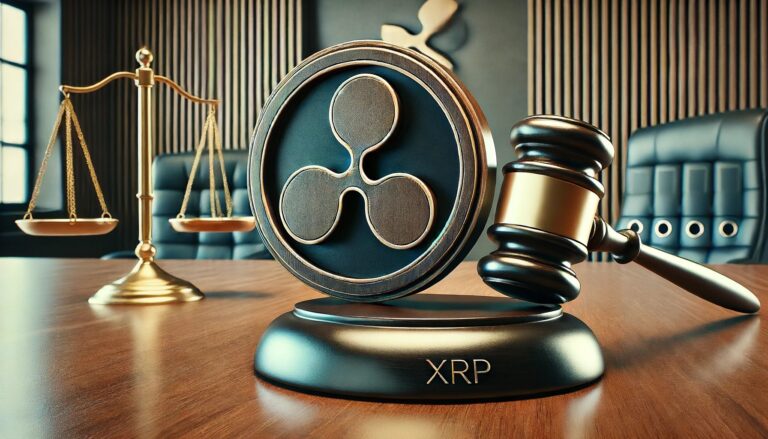In the ongoing high-stakes legal battle between Ripple Labs Inc. and the U.S. Securities and Exchange Commission (SEC), the fintech company has submitted an important notice of supplemental authority to the Southern District of New York. This recent depositdated June 13, 2024, seeks to change the judicial perspective regarding the SEC’s Motion for Relief and Entry of Final Judgment
Ripple vs. SEC Court Update
Highlight a parallel SEC case against Terraform Labs, Ripple’s legal representatives present a comparative analysis, arguing for fairer treatment in their own case. The filing strategically references the SEC v. Terraform Labs Pte. Ltd., where Terraform and its CEO Do Hyeong Kwon were found responsible for carrying out “one of the largest securities frauds in U.S. history,” as the SEC described it.
In this case, the court approved a final consent judgment on June 12, 2024, which ordered Terraform Labs to pay approximately $3.59 billion in restitution and a civil penalty of $420 million, which corresponds to approximately 1 .27% of Terraform’s $33 billion in gross sales. Ripple’s opinion, authored by Michael K. Kellogg of Kellogg, Hansen, Todd, Figel & Frederick, PLLC, exploits this finding to challenge the proportionality of the SEC’s requests.
The document filed by Ripple’s lawyer compares the SEC’s treatment in the Terraform case to its approach toward the company, highlighting a stark contrast between the sanctions versus the severity of the allegations. The lawyers point out that unlike Terraform, which was involved in numerous fraudulent activities resulting in significant losses for investors, Ripple’s case does not involve any allegations of fraud.
Additionally, they argue that the penalties sought by the SEC are disproportionately high, citing that penalties in similar prior cases ranged only between 0.6% and 1.8% of the defendant’s gross revenues. The submission includes the following statement to highlight this disparity: “The civil penalty sought by the SEC in Terraform demonstrates the unreasonableness of the civil penalty sought by the SEC in this matter. »
Additionally, Ripple’s legal team argues that such an unbalanced sanction is not only unprecedented but also unfair, given the lack of direct financial harm to institutional buyers typically associated with cases of this nature.
By drawing parallels with the Terraform case, Ripple’s legal strategy aims to illustrate what it perceives as an inconsistency in the SEC’s enforcement of sanctions. This tactic not only calls into question the fairness of the SEC’s actions, but also seeks to establish a basis for negotiating a more reasonable sanction.
Ripple’s lawyer argues for a civil penalty cap at $10 millionsignificantly lower than the $2 billion fine proposed by the SEC for selling XRP to institutional investors.
At press time, XRP was trading at $0.47967.

Featured image created with DALL·E, chart from TradingView.com


